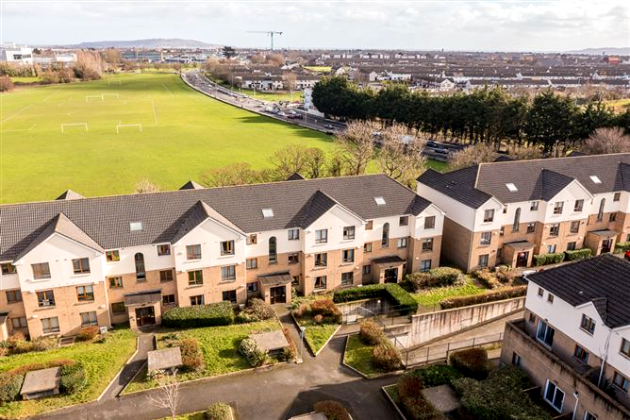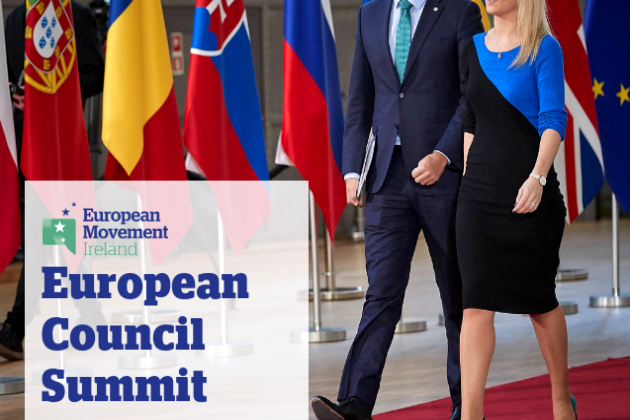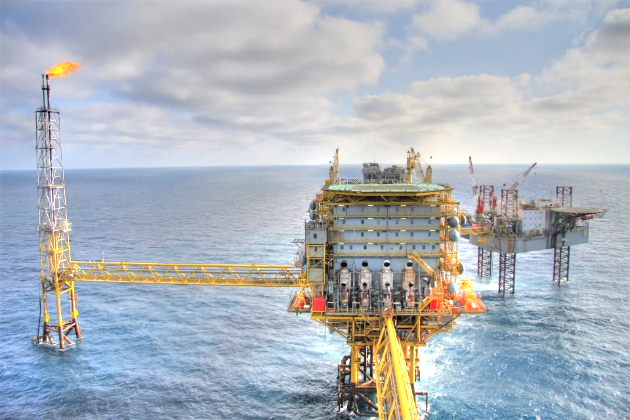Why some UK firms are fine with a no-deal Brexit
News24
19 Aug 2019, 11:43 GMT+10

With the looming threat of the UK leaving the EU without a withdrawal deal and a slim but rising risk of the pound plunging to parity with the dollar, more chief executives are telling investors they can handle any eventuality - however messy.
Unfortunately, having a fully fleshed out Brexit contingency plan is a luxury not all firms can afford. Nor does it solve the question of how any company will cope if a no-deal departure crashes the economy.
A hunt through Bloomberg's trove of filings of company financial results throws up six publicly-traded companies that have labeled themselves "Brexit-proof," or close to it. These are: healthcare facilities provider Primary Health Properties; wealth manager Rathbone Brothers; food producer Cranswick; industrial real estate firm Stenprop; Lloyd's of London and the payments technology provider Net 1 UEPS Technologies.
Their confidence stems either from the niche products that they sell, their domestic U.K. supply chains (meaning less exposure to a sudden rise in tariff barriers to trade), or the fact that they'll keep EU-based hubs that remove the uncertainty of regulatory hurdles.
They're not alone in their messages of comfort. Much of the finance world has had to prepare for the worst, including the likes of Barclays, HSBC Holdings and Royal Bank of Scotland Group. Other industries are joining the fray. "Leaving the EU without a deal is not corporate death for us, but it's annoying," the boss of the Volskwagen AG-owned luxury carmaker Bentley said this week. A no-deal scenario means only "mild disruption" for the retailer Next, according to its CEO Simon Wolfson. Is this complacency or just sound planning?
There are three big Brexit risks cited frequently by companies: Tariff barriers, non-tariff or regulatory hurdles, and logistical issues such as holdups at ports.
On tariffs, the Confederation of British Industry lobby group has offered up some dire warnings, including textile imports from Turkey facing an average charge of 12% post-Brexit and vehicle exports to the EU getting whacked with a 10% levy. But some firms think they can take the pain. Next estimates 20m pounds (R368m at current rates) in additional input costs from import duties, equivalent to a 0.5% price increase on its clothing products. Chemicals producer Croda International Plc estimates a "mid-to-high single-digit million" impact from tariffs, a cost it would partly absorb and partly pass on to customers. Makers of higher end stuff, such as $200 000 Bentleys, will be confident of getting shoppers to fork out more if their costs go up.
READ: Recession warnings pile up for the battered global economy
On the threat of more regulation and other non-tariff changes, some CEOs are equally sanguine. Croda's management says it's ready to re-register its products in the EU in the event of a no-deal departure. Next says there's no reason why independent testing of its products would stop them being acceptable to Brussels regulators.
On the fear about logistical snarl-ups in the immediate aftermath of a sudden UK-EU rupture, the more optimistic British bosses point to their stockpiling of goods and securing of alternative supply routes. Several say they've amassed six months' worth of supply usually delivered from Europe. Bentley and Next say they can avoid the crowded Dover-Calais shipping route if it's disrupted. "I'm much less frightened of no-deal," says Wolfson.
It's important to remember, however, that all of this preparation costs money (and that Wolfson is a Conservative Party peer and leave voter). A look at Next's 11-page Brexit contingency plan published last year shows an elaborate new structure to limit the pain. It has set up a German company through which it intends to shift more European sales and an Irish entity to handle orders there.
Yet allocating millions to emergency plans means delaying investment or passing on the cost to suppliers or clients. Some companies can swallow this more easily than others. For Westley Group, a small foundry and engineering group, a loss of 2 million pounds (around R37m at current rates) in EU orders related to Brexit last year equated to 7% of its revenue. That's significant.
And managing to survive the worst ravages of a hard break with Europe won't mean much if the U.K. economy is worse off. Investors are certainly betting that way by favoring the big, internationally diversified companies of the FTSE 100 over those that make most of their sales in Britain.
The chart above shows a 13% performance gap over the past year between the shares of British exporters (which get most of their revenue overseas) and those of domestically-focused UK companies. It's interesting that the latter group include companies that claim to be fully prepared such as Barclays.
One thing CEOs can't control is investors' own emergency plans.
 Share
Share
 Tweet
Tweet
 Share
Share
 Flip
Flip
 Email
Email
Watch latest videos
Subscribe and Follow
Get a daily dose of Scandinavia Times news through our daily email, its complimentary and keeps you fully up to date with world and business news as well.
News RELEASES
Publish news of your business, community or sports group, personnel appointments, major event and more by submitting a news release to Scandinavia Times.
More InformationEurope
SectionDublin ranked 2nd most expensive for apartment construction in Europe
DUBLIN, Ireland: Dublin has been ranked as the second most expensive city for apartment construction among ten major European locations,...
Major European summit planned in Ireland next year
DUBLIN, Ireland: Ireland is positioning itself to host a high-profile gathering of European leaders next year, with Tanaiste Simon...
EC to ease sustainability rules to boost business competitiveness
BRUSSELS/LONDON: The European Commission is preparing to ease sustainability reporting requirements for businesses as part of a broader...
Ireland’s average rents went up by 5.7% in 2024, report says
DUBLIN, Ireland: Ireland's rental market continued to tighten in 2024, with average rents rising by 5.7 percent over the year, according...
EU pushes for US gas, renewables to cut Russian Reliance by 2027
BRUSSELS, Belgium: The European Union is ramping up efforts to secure alternative gas supplies and accelerate its shift to renewable...
Ireland supermarket honors 1999 pre-euro voucher
DUBLIN, Ireland: A supermarket in Kildare made headlines after honoring a 5-pound voucher issued in 1999, long before Ireland adopted...
International
SectionPoland to continue covering Ukraine’s Starlink costs, says deputy PM
WARSAW, Poland: Deputy Prime Minister Krzysztof Gawkowski confirmed over the weekend that Poland has been covering the cost of Ukraine's...
Opinion - Israel's government exploited hostages
Israel sustained the West's support for its slaughter in Gaza for 15 months only through an intensive campaign of lies. It invented...
Pentagon to cut 5,400 jobs amid Trump’s federal workforce reduction
WASHINGTON, D.C.: The Pentagon announced this week that it will cut 5,400 jobs as part of President Donald Trump's plan to shrink the...
Newsom urges Congress for $40 Billion to aid LA wildfire recovery
SACRAMENTO, California: California Governor Gavin Newsom is urging Congress to approve nearly US$40 billion in federal assistance to...
USDA scholarship for underserved students from Black colleges on hold
WASHINGTON, D.C.: A U.S. government scholarship program designed to help students from underserved and rural areas attend historically...
US oil tariff may force foreign producers to pay $10 billion annually
WASHINGTON, D.C.: A proposed 10 percent U.S. tariff on oil imports could deal a US$10 billion annual blow to foreign producers, particularly...













